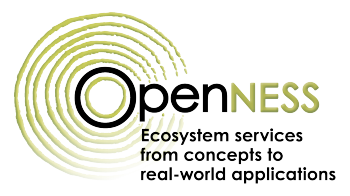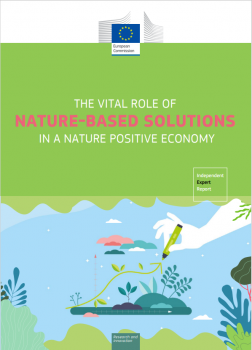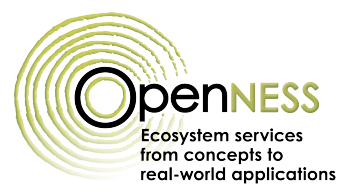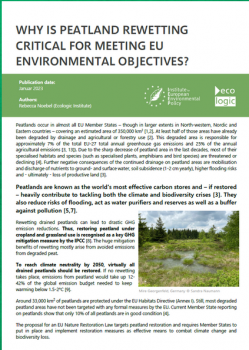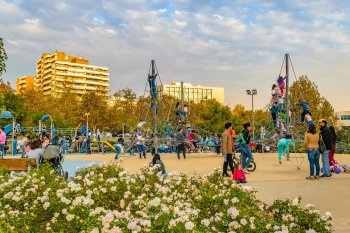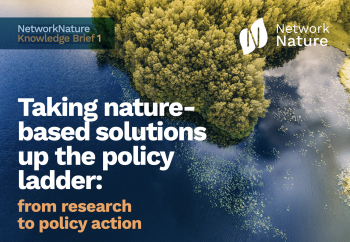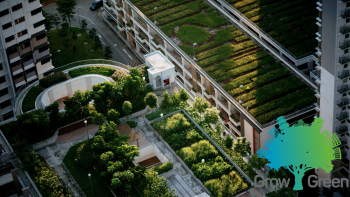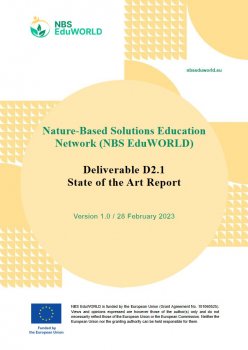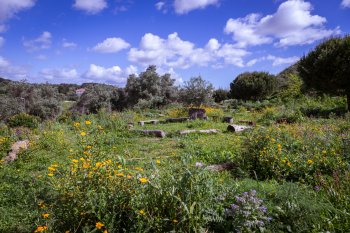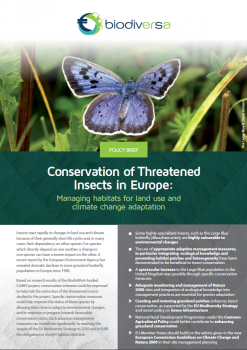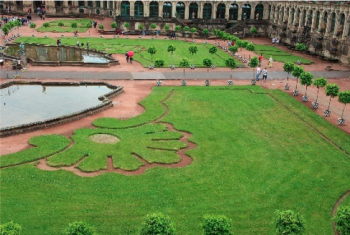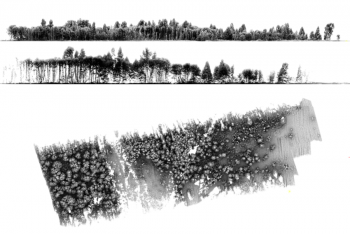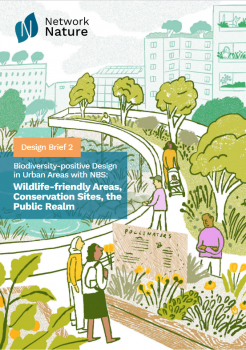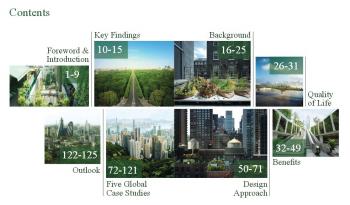Marketplace
OpenNESS Synthesis paper: Ecosystem services and transdisciplinarity
Similar to related approaches such as post-normal science, citizens science, participatory approaches, transdisciplinarity (TD) goes beyond multi- and interdisciplinary research by co-creating knowledge with and for societal actors. Therefore the language, the concepts and the methodology used in
Pitching Green Infrastructure
Methodology for assessing urban green infrastructure and planning for ecosystem services.
The vital role of nature-based solutions in a nature positive economy
This report is a first step in addressing knowledge gaps in the potential economic benefits of Nature-Based Solutions (NbS) and the challenges facing NatureBased Enterprises (NBE). Based on extensive consultations, we profile some of the economic activities where NBE are engaged in the delivery of
Method Factsheet - Revised Universal Soil Loss Equation (RULSE)
The Revised Universal Soil Loss Equation (RUSLE) is an empirical erosion model recognised as a standard method to calculate the average risk of erosion on arable land. It developed from the Universal Soil Loss Equation (USLE) developed in the US Department of Agriculture and has other similar
Why is Peatland Rewetting Critical for Meeting EU Environmental Objectives?
The EU Commission published its proposal for a new Nature Restoration Regulation in June 2022. In this context, Ecologic Institute and IEEP – as part of the Think Sustainable Europe network – published a series of thematic policy briefs to inform Members of the European Parliament and other
CAPACITY-BUILDING MATERIALS AND EDUCATIONAL PACK IN LOCAL LANGUAGES
A set of capacity building materials has been produced to raise awareness and understanding of the definition of nature-based solutions adopted by the UN Environment Assembly in 2022. Materials include infographics that contain the full meaning of the definition and a video that introduces
The Cities and Biodiversity Outlook - URBES Factsheet #4
This Factsheet highlights some of the mian highlights from the Cities and Biodiversity Outlook - the first scientific assessment of how global urbanization trends affect biodiversity and ecosystem dynamics. It explains how biodiversity and ecosystem services can be managed and restored in
- Document
Enhancing Additionality Assessment of Carbon Credit of Various Interventions by Utilizing Site-Specific Historical Data in Compliance with IPCC International Standards
In carbon credit additionality projects, precise quantification methods are crucial to prevent incorrect estimations. The project activities and results demonstrated that active forest management generates additionality and, consequently, carbon credits.
Climate change in 12 pictures
This colourful and illustrative brochure was developed within the IUCN's initiative ADAPT: Nature-based Solutions (NbS) for resilient communities in Western Balkans. It represents a short guide through the climate change consequences showcasing possible solutions to climate change adaptation
NetworkNature Knowledge Brief
The brief provides an overview of the NbS knowledge gaps resulting from an analysis conducted by NetworkNature of a large number of publications, online consultations and dialogues with stakeholders. To reflect the potential of NbS from an environmental, economic and societal perspective, this
Nature-based solutions in the GrowGreen cities: videos
As the evidence base on the role and benefits of nature-based solutions (NbS) grows rapidly, these solutions are featuring with increasing prominence in global climate change policy, stressing the importance of their implementation in urban environments. The Horizon2020 project GrowGreen has
NbS EduWORLD State of the Art Report
This report aims to provide an overview and detailed analysis of the state of the art in nature-based solutions (NBS) education across the European region and at different education levels. Based on desk research and interviews, it highlights the gaps and opportunities in NBS education. It finds
Conexus key learning factsheet series - Formats for transferring NbS knowledge
In Latin American and European cities, various initiatives are being used for transferring knowledge to different audiences to raise awareness of Nature-based Solutions (NbS) and improve their uptake and implementation. This factsheet highlights some of these initiatives and their experiences as
Conservation of threatened insects in Europe
The "Conservation of threatened insects in Europe" policy brief is focusing on the conservation of threathened and vulnerable insects in the context of changing land use and climate. This brief builds on the BiodivERsA-funded CLIMIT project, lead by Dr. Josef Settele. The brief gives
Lawns in Cities: From a Globalised Urban Green Space Phenomenon to Sustainable Nature-Based Solutions
This opinion paper discusses urban lawns, the most common part of open green spaces and urban green infrastructures. It highlights both the ecosystem services and also disservices provided by urban lawns based on the authors’ experience of working within interdisciplinary research projects on lawns
The Purpose of Nature’s Impact on Human Health Guide
The Nature’s Impact on Human Health Guide is a resource primarily intended for practitioners seeking to evaluate the impact of green interventions on human health to inspire additional investment of time and resources in nature-based solutions to human health challenges. The reasons to do so are
- Document
Decision support tool : an Integrated green grey framework
Guidance on innovations in green grey infrastructure - costed examples and more, see http://eprints.gla.ac.uk/150672/.
Carbomap F-LUX: Lidar information acquired from drones, and processed in real-time
High-performance lidar scanner for environmental surveys. Flown on a fixed wing UAV with advanced specification. Long duration (8 hrs) and long range (1,000 km). Real time lidar data processing: by the time the drone lands, your inventory information inhand!
Design Brief 2- Biodiversity-positive Design in Urban Areas with NbS: Wildlife-friendly Areas, Conservation Sites, the Public Realm
This NetworkNature design brief series, the first of its kind, comprises three design briefs on biodiversity-positive design recommendations for urban and peri-urban areas with nature-based solutions. The series, developed with support of IFLA Europe, presents simple design suggestions for
Cities Alive: Green Building Envelope
Can retrofitting cityscapes with vegetation improve the health and well-being of urban citizens? Can we use green facades to capture renewable energy and drive sustainability? Experts from eight skill networks around the world came together in Berlin in 2015 to cross-examine these questions using
- ‹ previous
- 39 of 45
- next ›

